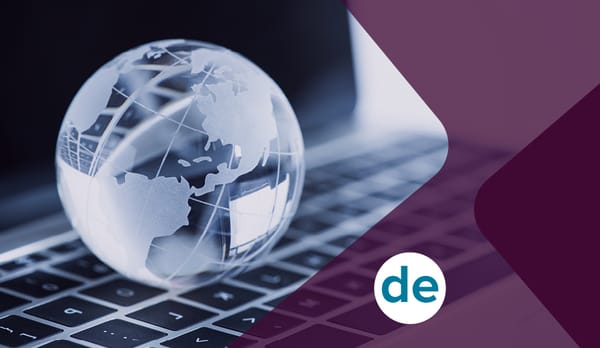WSIS+20 negotiations enter decisive phase
WSIS+20 is entering a decisive phase. Following virtual stakeholder consultations on 13 and 14 October, the first formal government negotiations took place in New York from 15 to 20 October. Further consultations were held on 25 October on the sidelines of the ICANN meeting in Dublin. The contentious points of the zero draft became clear and a procedural problem was revealed. In terms of content, there was agreement in principle on the basic structure of the zero draft. One point of conflict is that Russia rejects all references to the Global Digital Compact (GDC) and the US rejects references to the UN Sustainable Development Goals (SDGs). The G77 wants to place less emphasis on human rights and more on connectivity. The primary issue here is financing. Internet governance was less controversial than expected. The proposal to give the IGF permanent status within the UN system met with little opposition. The link between the IGF and the new UN dialogue on AI governance remains open. The procedural problem is that government negotiations are taking place behind closed doors. Even the Informal Multistakeholder Sounding Board (IMSB), which was intended to act as a hinge between stakeholders and governments, has so far been denied access to government negotiations. A new draft has been announced for 7 November 2025. Further consultations and negotiations are planned from 14 November onwards. The WSIS+20 final document is to be adopted on 17 December 2025 at the 80th UN General Assembly (UNGA).[1]
EU digital ministers adopt "Jutland Declaration" on the protection of minors online
On 10 October 2025, under the Danish Presidency of the Council of the EU, EU digital ministers agreed on rules for better protection of minors in the online world. A key element of the „Jutland Declaration: Shaping a Safe Online World for Minors“ is age verification. „If providers are to ensure privacy, safety and security for minors online with age-appropriate content and interfaces, those providers must take all necessary measures to achieve a high level of protection and implement safety by design. This includes, where necessary, appropriate and proportionate, having a firm awareness of the age group of their users.“[2] Digital Minister Wildberger and Education Minister Prien signed the declaration on behalf of Germany.
APEC Summit: Focus on digital divide, AI cooperation and data flow
The APEC Leaders' Gyeongju Declaration, adopted at the Asia-Pacific Economic Cooperation (APEC) summit on 31 October 2025, focuses on overcoming the digital divide, AI cooperation and free data flow. „We underscore the importance of bridging digital divides, improving digital connectivity, enhancing digital literacy and making the benefits of digital transformation accessible to all…We also emphasize the importance of strengthening trust and confidence in the digital and AI ecosystem… Recognizing the increasing importance of data to the digital economy, we will continue our cooperation on facilitating the flow of data, and strengthening business and consumer trust in digital transactions.“[3] APEC comprises 28 countries, including the United States, China and Russia. In 2026, China will take over the APEC chairmanship from South Korea.
Majority at the UN in favour of negotiations on autonomous weapon systems
During the October negotiations on autonomous weapon systems in the First Committee of the 80th UN General Assembly, a majority emerged in favour of initiating formal negotiations for the drafting of an international treaty. More than 100 states supported the Austrian draft resolution of 14 October 2025. It calls for „to work towards completing the set of elements for an instrument being developed within the mandate of the GGE LAWS with a view to future negotiations.“[4]
Davos World Economic Forum: Focus on AI and cyber security
The annual meeting of the Global Future Councils and Cybersecurity at the Davos World Economic Forum on 12 October 2025 in Dubai focused on the interrelationship between AI and cybersecurity. The United Arab Emirates (UAE) is increasingly becoming a model region for AI. „AI is a new oil into so many sectors that we have,” said Mohamed Al Kuwaiti, the UAE’s Head of Cybersecurity. “We need to innovate. Not only thinking of those conventional old types of legacy systems or even teams, but really to come out of this box and think of how to use AI for the benefit of many of those aspects.”[5]
Signing of the "Hanoi Convention" against cybercrime
On 25 October 2025, the signing ceremony for the UN Convention on Cybercrime, adopted by the 79th UN General Assembly in December 2024, took place in Hanoi.[6] 71 countries were among the first signatories of the new Hanoi Convention. The convention was an initiative of Russia. Despite critical assessments of individual parts, all EU states and the United Kingdom have signed the convention. The United States had agreed to the text of the convention in December 2024, but refrained from formally signing it in Hanoi, as did Japan, Argentina and India.[7] The convention will enter into force after the 40th instrument of ratification has been deposited. In a joint statement dated 27 October 2025, 20 civil society organisations reiterated their reservations about the new Hanoi Convention. They argue that it would enable human rights violations and establish an electronic surveillance system.[8]
EU-Ukraine cyber dialogue strengthens cooperation against cyber attacks
At the 4th cyber dialogue between the EU and Ukraine on 16 October 2025 in Kiev, a joint approach to cyber attacks was coordinated and closer integration of Ukraine into the EU's cyber security mechanisms (NIS2, 5G Toolbox, Tallinn Mechanism, ENISA, EUROPOL, etc.) was agreed.[9]
Future Foundation in Vienna presents ten rules for the digital world
On 28 September 2025, a „Future Foundation“ was founded in Vienna[10] which aims to promote the dissemination of „Ten Rules for the Digital World“. The rules, which were developed by a 16-member expert group led by Prof. Sarah Spiekermann from the Vienna University of Economics and Business, are intended to provide citizens and institutions with guidance for personal behaviour on the internet in simple language, similar to the Ten Commandments.
- Do not elevate digital technology to an end in itself
- Do not attribute humanity to machines
- Create space for leisure and analogue encounters
- Guarantee the preservation of social and democratic skills
- Do not destroy nature for the sake of technological progress
- Do not treat people as mere data objects
- Do not allow yourselves to be robbed of your human potential
- Do not deny the limits of technology
- Do not use machines to undermine the freedom of others
- Prevent the concentration of power and guarantee participation
[1] https://www.un.org/pga/wp-content/uploads/sites/109/2025/05/Co-facs_Letter_WSIS20_1st_Prep_Meeting.pdf
[2] https://www.digmin.dk/Media/638956829775203140/DIGMIN_The%20Jutland%20Declaration%20Shaping%20a%20Safe%20Online%20World%20for%20Minors%20101025.pdf
[3] https://www.apec.org/meeting-papers/leaders-declarations/2025/2025-apec-leaders--gyeongju-declaration
[4] https://reachingcriticalwill.org/images/documents/Disarmament-fora/1com/1com25/resolutions/L41.pdf
[5] https://www.weforum.org/stories/2025/10/ai-new-oil-uae-cyber-chief-digital-resilience-amgfcc/
[6] https://www.unodc.org/unodc/en/press/releases/2025/October/un-convention-against-cybercrime-opens-for-signature-in-hanoi--viet-nam.html
[7] https://treaties.un.org/Pages/ViewDetails.aspx?src=TREATY&mtdsg_no=XVIII-16&chapter=18&clang=_en
[8] https://www.gp-digital.org/news/joint-statement-on-the-signing-of-the-un-convention-on-cybercrime/
[9] https://digital-strategy.ec.europa.eu/en/news/eu-and-ukraine-deepen-cooperation-cyber-security-4th-cyber-dialogue
[10] https://gsis.at/2025/09/03/10-regeln-fur-die-digitale-welt/
[11] https://www.uibk.ac.at/systheol/hoff/forschung/10-regeln.pdf












